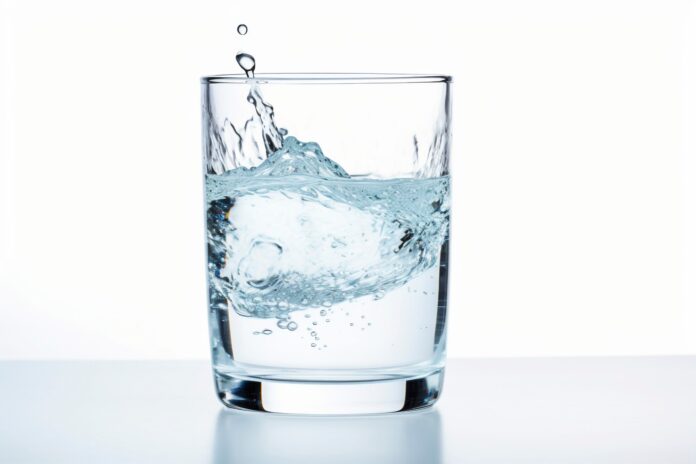We’ve all heard the age-old adage, “You are what you eat,” emphasizing the importance of nutrition for our overall health. But what about the fluids we consume? It turns out that our hydration status can have a significant impact on our mood and emotional well-being.
In this article, we’ll explore the fascinating and often underestimated relationship between hydration and mood.
From understanding the science behind it to practical tips for staying properly hydrated, you’ll discover how the simple act of drinking water can enhance your emotional state.
Table of Contents
- Introduction
- The Science of Hydration and Mood
- Dehydration and Its Effects on Mood
- The Role of Hydration in Cognitive Function
- Hydration and Stress Management
- Practical Tips for Staying Hydrated
- The Hydration-Mood Connection in Practice
- Conclusion
1. Introduction
Every day, we experience a wide range of emotions, from happiness and contentment to stress and irritability. These emotional states are influenced by various factors, including our environment, daily activities, and even the food and drinks we consume.
But what about our hydration status? Water, a fundamental element of our existence, plays a critical role not only in maintaining our bodily functions but also in affecting our mood.
While we often focus on nutrition and exercise as key components of our well-being, we may underestimate the significance of staying properly hydrated.
In this article, we’ll explore how hydration and mood are interconnected and how understanding this relationship can lead to a happier and more emotionally balanced life.
2. The Science of Hydration and Mood
Before delving into the effects of dehydration on mood, let’s establish the scientific basis for the hydration-mood connection. Our bodies are composed of about 60% water, and nearly every physiological process relies on adequate hydration to function optimally.
Water serves as a transportation medium for essential nutrients, aids in temperature regulation, and acts as a lubricant for joints, among other crucial functions.
In the context of mood regulation, water plays a vital role in:
- Neurotransmitter Production: Water is necessary for the production of various neurotransmitters, including serotonin and dopamine, which are closely linked to mood and emotions.
- Brain Function: Proper hydration is essential for maintaining brain function, including cognitive processes, memory, and concentration.
- Hormone Regulation: Water helps regulate the balance of hormones in the body, impacting stress and emotional responses.
- Toxin Removal: Adequate hydration assists in the removal of waste products and toxins from the body, preventing their buildup, which can have negative effects on mood.
3. Dehydration and Its Effects on Mood
Now, let’s delve into the adverse effects of dehydration on mood. When you don’t consume enough water to meet your body’s needs, it can lead to various physical and cognitive disruptions, which in turn affect your emotional well-being.
Some of the common mood-related consequences of dehydration include:
- Irritability: Dehydration can lead to an increased perception of physical and emotional stress, making you more prone to irritability and mood swings.
- Anxiety: Inadequate hydration can trigger feelings of anxiety and restlessness. This is because dehydration can affect the balance of stress hormones like cortisol.
- Poor Concentration: Dehydration impairs cognitive function, making it difficult to focus, think clearly, and perform mental tasks. This can lead to frustration and decreased confidence.
- Low Energy: When you’re dehydrated, your energy levels drop, making you feel fatigued and less motivated. This can lead to a lack of enthusiasm and even depressive feelings.
- Headaches: Dehydration is a common trigger for tension headaches and migraines, which can significantly affect your mood and overall well-being.
- Increased Stress: Chronic dehydration can increase stress levels, as your body’s stress response is triggered more easily when you’re in a dehydrated state.
4. The Role of Hydration in Cognitive Function
Cognitive function, including memory, problem-solving, and decision-making, is closely linked to hydration. Research has shown that even mild dehydration can impair cognitive performance. When you’re not thinking clearly or struggling with memory recall, it’s not surprising that your mood can be negatively affected.
Here’s how hydration influences cognitive function:
- Memory: Dehydration can lead to short-term memory problems, making it challenging to remember important details or tasks.
- Attention and Concentration: Staying hydrated is essential for maintaining focus and the ability to concentrate on specific tasks.
- Problem-Solving: When dehydrated, your ability to think through problems and make sound decisions can be compromised, leading to frustration and stress.
- Mental Clarity: Proper hydration ensures that you can think clearly and make rational judgments, which contributes to a more stable emotional state.
5. Hydration and Stress Management
Stress is an inevitable part of life, but how we manage it can significantly impact our mood and emotional well-being. Hydration plays a pivotal role in managing stress for several reasons:
- Stress Hormone Regulation: Proper hydration helps regulate stress hormones like cortisol. When you’re dehydrated, your body is more likely to produce excess cortisol, contributing to heightened stress levels.
- Physical Resilience: Staying hydrated enhances physical resilience to stress. Dehydration can lead to physical discomfort, making you more sensitive to stressors.
- Emotional Resilience: Hydration contributes to emotional resilience, allowing you to cope with stress in a healthier and more composed manner.
- Calm Nervous System: Proper hydration helps maintain a well-functioning nervous system, reducing the likelihood of overreacting to stressors.
6. Tips for Staying Hydrated
Now that we’ve explored the critical connection between hydration and mood, let’s delve into practical strategies to ensure you stay properly hydrated:
- Monitor Water Intake: Keep track of your daily water consumption to ensure you’re meeting your body’s hydration needs. Aim for at least eight 8-ounce glasses of water a day, but individual requirements may vary.
- Drink Before You’re Thirsty: Thirst is a sign of dehydration, so try to drink water before you feel thirsty to stay ahead of your body’s hydration demands.
- Incorporate Hydrating Foods: Many fruits and vegetables have high water content and can contribute to your overall hydration. Cucumbers, watermelon, and oranges are great choices.
- Establish a Routine: Set specific times during the day to drink water. For example, have a glass when you wake up, before meals, and before going to bed.
- Carry a Reusable Water Bottle: Having a water bottle with you makes it more convenient to drink water throughout the day. Consider a bottle with volume markings to track your progress.
- Flavor Your Water: If you find plain water unappealing, infuse it with slices of fruit, cucumber, or herbs like mint to add a touch of flavor.
- Avoid Excessive Caffeine and Alcohol: Both caffeine and alcohol can contribute to dehydration. If you consume them, be sure to balance with extra water intake.
- Pay Attention to Weather: Hot or dry weather conditions can increase your water loss through sweat and evaporation. Adjust your water intake accordingly.
- Listen to Your Body: Pay attention to physical cues like dry mouth and dark yellow urine, which can be indicators of dehydration.
7. The Hydration-Mood Connection in Practice
To understand the practical impact of proper hydration on mood, consider the following scenarios:
- Scenario 1: The Morning Boost You start your day with a glass of water and a sense of alertness. Your cognitive function is optimized, and you feel ready to take on the day with a positive attitude.
- Scenario 2: The Midday Slump By midday, you’ve been busy and haven’t had much to drink. You find it difficult to concentrate, and you start feeling irritable. Your mood takes a hit.
- Scenario 3: The Stressful Evening A particularly stressful evening leaves you feeling drained. You decide to relax with a cup of herbal tea and some water, helping your body and mind unwind. You end the day with a calmer emotional state.
In each scenario, hydration plays a direct role in influencing your mood and emotional well-being. By understanding this connection and implementing practical strategies for staying properly hydrated, you can enhance your daily experiences and emotional resilience.
Hydration and Mood – Final Thoughts
The hydration-mood connection is a powerful reminder that our daily habits, even seemingly mundane ones like drinking water, can significantly impact our emotional well-being. Proper hydration is not just about physical health; it’s about providing your body and mind with the foundation they need to function optimally.
By recognizing the role of water in neurotransmitter production, cognitive function, and stress management, you can make conscious choices to prioritize hydration as a fundamental aspect of your overall well-being.
Whether you’re seeking greater emotional balance, enhanced cognitive function, or better stress management, the simple act of staying properly hydrated can contribute to a happier and healthier life.






























